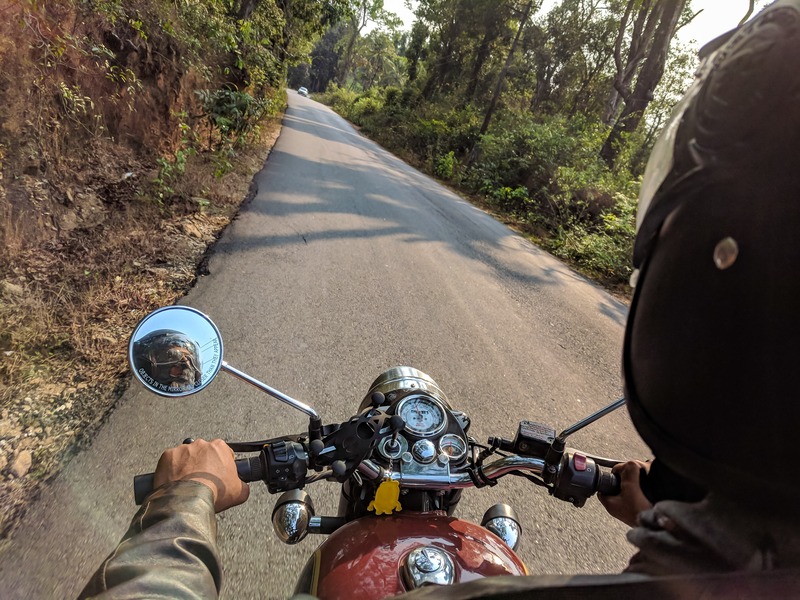
Motorcycle riders should always take safety precautions, which include wearing a helmet. Like most states, Florida has a partial helmet law. That means it’s not universal and doesn’t apply to every motorcyclist. For example, riders over 21 can opt not to wear helmets under certain conditions.
The Florida motorcycle helmet law is designed to safeguard riders as much as possible. Wearing a helmet can decrease the risk of severe head injuries and reduce fatalities in the event of an accident. Get in touch with our experienced Florida motorcycle accident lawyers for a complimentary consultation by calling (850) 493-7975 or completing our online form today.
Are Motorcycle Helmets Required in Florida?
The Florida helmet law of 2023 stipulates that anyone operating or riding a motorcycle must properly wear a helmet. The helmet must comply with the Federal Motorcycle Vehicle Safety Standard 218 set forth by the United States Department of Transportation.
Under Florida’s laws, motorcycle riders must also wear appropriate eye protection that meets requirements set forth by the Department of Highway Safety and Motor Vehicles. Safety protection can help riders avoid hazards that could impair their vision and lead to an accident.
What Are Exceptions to the Florida Helmet Law?
While the Florida motorcycle helmet law is pretty straightforward, there are a few exceptions. The first exception involves riders within an enclosed cab. If this exception applies to your motorcycle configuration, you’re exempt from the helmet law requirements.
Riders over 21 can also choose to ride without a helmet, but there is a caveat. Riders can go without a helmet only if they purchase an insurance policy covering at least $10,000 in medical benefits for injuries sustained in a crash. This exception makes it legal for riders to forgo helmets if they meet these specific criteria, although the safety risks remain.
What Are Some Safety Considerations for Young Riders?
For younger riders, the rules are stricter. Anyone under the age of 16 is required to wear protective headgear while riding or operating a moped. It’s crucial to note that the headgear must also comply with Federal Motorcycle Vehicle Safety Standard 218.
Further, each motorcycle registered to a person under 21 must display a uniquely designed and colored license plate. This rule is so police can quickly identify these riders and enforce the helmet law.
What Is The Role of Helmets in Saving Lives?
Despite the legal exemption for some riders, the safety benefits of helmets are unquestionable. Studies indicate that helmet use significantly reduces the risk of severe head injuries and fatalities in accidents. For instance, following the helmet law adjustment in Florida in 2000, a study revealed an increase from 30.8 to 38.8 motorcycle rider deaths per 1,000 crash involvements.
How Not Wearing a Helmet Impacts Your Claim
Florida is a no-fault state, but personal injury protection (PIP) insurance doesn’t apply to motorcycle accidents. The requirement of purchasing the extra $10,000 insurance under the helmet law is for medical payments. Medical payments coverage is similar to PIP, except you can automatically pursue a third-party claim against the other driver. With PIP claims, you must meet certain criteria first.
It’s important to note that Florida is a comparative negligence state. That means the other driver’s insurance adjuster will allege you contributed to your own injuries if you were not wearing a helmet.
With comparative negligence, your potential recovery is reduced by your percentage of fault. For example, consider an accident where the motorcycle rider did not cause the accident but was not wearing a helmet. The jury might decide the motorcycle rider has 20% liability because their head injury wouldn’t be as severe had they worn one. That means the maximum compensation the victim could receive is 80%.
Potential Compensation in a Florida Motorcycle Accident Claim
Recoverable damages vary depending on your accident circumstances, liability, and damages. In general, victims can pursue compensation for damages such as:
- Past and future medical expenses,
- Lost wages,
- Future loss of earning capacity,
- Property damage,
- Pain and suffering, and
- Mental anguish.
If the victim passes away, surviving family members might be able to bring a wrongful death claim against the other driver.
Contact a Florida Motorcycle Accident Lawyer
Florida has had more than 500 motorcycle fatalities annually since 2018. The alarming motorcycle fatality rates emphasize the urgent need for all riders to prioritize safety. Compliance with helmet laws is more than just legal obedience; it’s about taking the necessary precautions to protect your life and the lives of others on the road.
If you were involved in a motorcycle accident caused by another driver’s negligence, please get in touch with the skilled legal team at Nonni Homola. When you meet with one of our lawyers, we will review your case and help you determine the best course of legal action.
We have decades of combined experience assisting injured motorcycle accident victims. Let us help you pursue justice, even if you were not wearing a helmet during the accident. Contact us today at (850) 493-7975 or fill out our online form for a complimentary consultation with our experienced Florida motorcycle accident lawyers.


